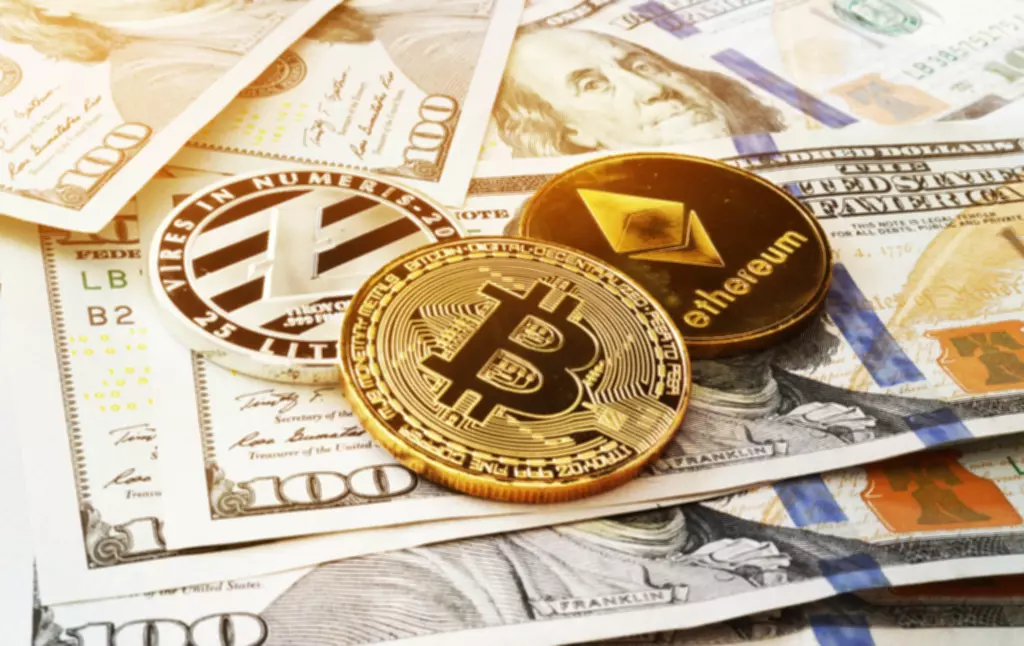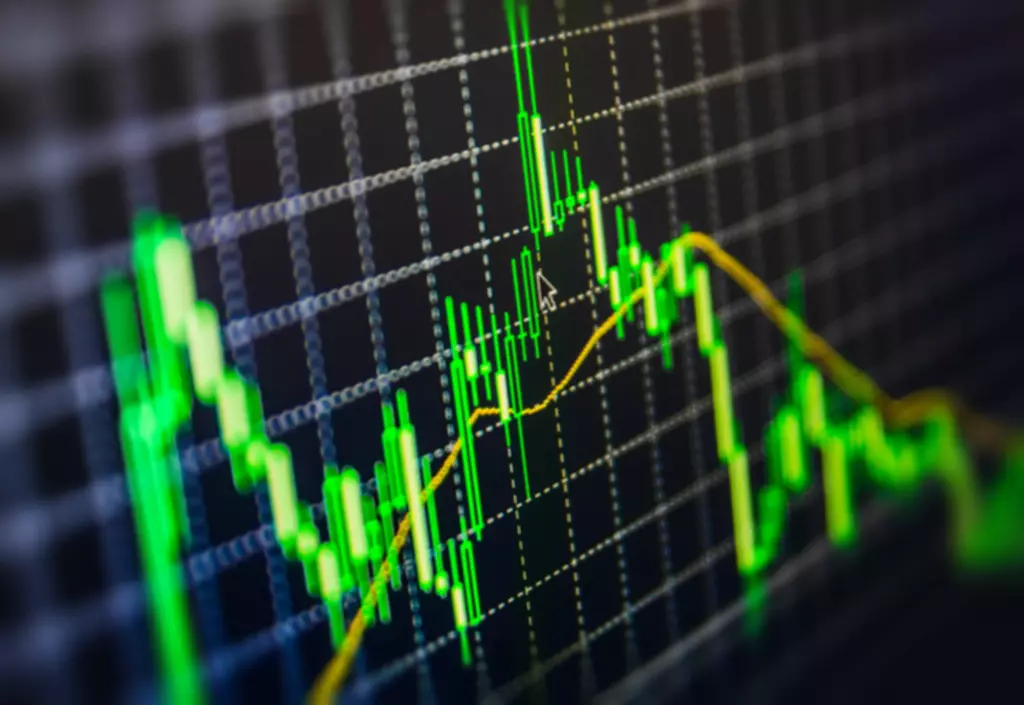VF Corp stock falls on reduced profit outlook, CEO transition
Content
Intraday data delayed at least 15 minutes or per exchange requirements. Market makers earn a living by having investors or traders buy securities where MMs offer them for sale and having them sell securities where MMs are willing to buy. Please note that by investing in and/or trading financial instruments, commodities and any other assets, you are taking a high degree of risk and you can lose all your deposited money. You should engage in any such activity only if you are fully aware of the relevant risks. BrokerChooser does not provide investment or any other advice, for further information please read our General Terms and Conditions.

Depending on it, concentrated long-haul control can and happens. Nonetheless, financial backers can benefit from long-haul control, as it brings about value drifts that can be abused. Without the impact of market markers to balance outspreads through liquidity support, it would be hard for spreads to keep low and fixed. The part of market markers is to connect this liquidity hole and make exchanging available to dealers. Developments of cash sets are estimated in the request for low decimal spots. Relative volume can be a game-changer for day traders tracking stock market momentum and volatility.
What is the Difference Between Market Makers vs. Specialists?
Market makers—usually banks or brokerage companies—are always ready to buy or sell at least 100 shares of a given stock at every second of the trading day at the market price. Basically, since they control the amount of stocks within the market, they can adjust the prices based on inventory. (Remember, supply and demand.) This helps regulate the market. As the name suggests, market makers “create the market.” In other words, they create liquidity in the market by being readily available to buy and sell securities. Most importantly, it helps other trades occur smoothly.
- A phony news subsidiary, siphon, and dump control are done through mass email or even standard mail.
- Founded in 1996 and based in Williamstown, Mass., Dion Money Management manages assets for clients in 49 states and 11 countries.
- Market makers procure a benefit by spreading the protection offer and the offer cost.
- Understanding that control can work possibly in support of you, contingent upon your position, helps eliminate stress over these occasionally unscrupulous or unlawful practices.
- MMs earn a living by having market participants buy at their offer and sell to their bid over and over again, day in and day out.
Whereas, the primary purpose of a market maker is to buy and sell securities from other traders and investors. Here’s a hypothetical example to show how a market maker trades. This means that they make a bid for 100 shares for $10.00 and also offer 500 shares at $10.05. Other market participants may then buy from the MM at $10.05 or sell to them at $10.00. Many exchanges use a system of market makers, each competing against one another to set the best bid or offer in order to win the business of orders coming in.
Had the product launch been a hit, Apple shares could have continued rallying, leaving the market maker on the wrong side of the action. This is a key risk that market makers take in return for earning the spread between buy and sell transactions throughout the day. For example, a market maker may be willing to purchase your shares of XYZ from you for $100 each—this is the bid price. The market maker may then decide to impose a $0.05 spread and sell them at $100.05—this is the ask price. Lead independent director Benno Dorer has been named interim president and CEO.
The Market Making Process
The difference between MM Prop and IBs are HOW credit lines are established to make these trading channels a reality. I have an obligation to be making tight markets to tons of people for any sort of product. Market PricesMarket price refers to the current price prevailing in the market at which goods, services, or assets are purchased or sold. The price point at which the supply of a commodity matches its demand in the market becomes its market price. Trade VolumeThe volume of trade is the overall measure of the number of securities, shares or contracts traded during a particular trading day.
Like superwealthy individuals or firms manipulating the marketplace. True to a degree I suppose, but also some nuance and a necessary evil. If their orders stopped, it’d be harder for traders to get in and out of their trading positions. But it also gives market makers much more power than the average retail trader in a transaction. These market makers work on large block orders for mutual funds. They also work for pension funds, insurance companies, and other asset management firms.

Understanding business sector control gives you an edge over the individuals who only overlook or deny it. As a retail trader, you can’t swap trades with your trading buddies like that. But you can do your best to stay on top of the latest news as soon as it breaks. The top 10% of market makers earn over $172,000 per year.
What It Means for Individual Investors
Buy SharesKnowing how to buy shares is crucial for a person who wants exposure to the equity market. Equity markets are volatile, and timing is very important. Shares trade in exchanges, but you just can’t go and buy a share from the exchange. There are several steps involved in purchasing a share. Whether traders show their interest in buying shares or selling them, they tend to support both. Understanding that a siphon and dump is occurring and blurring the move is a revered method to benefit.

Today, there’s hundreds—if not thousands—of market makers, both human and digital, providing services to various stock exchanges. These can range from large banks or broker-dealers making markets in thousands of securities to individuals or niche firms that concentrate in market making just a few different stocks. A market maker participates in the securities market by providing trading services for investors and boosting liquidity in the market. They specifically provide bids and offers for a particular security in addition to its market size. Market makers typically work for large brokerage houses that profit off of the difference between the bid and ask spread.
But doing so incentivizes them to recommend their firm’s stocks. They provide liquidity in the markets by placing large volume orders. Only recently did Robinhood force other brokerage firms to adopt commission-free trades.
Recommended Articles
High-frequency trading allows for ETF market makers to instantly lock in their profits through arbitrage, rather than risking exposure on either side as they are attempting to hedge. These market participants become sellers to interested buyers and buyers to interested sellers. GSCO specializes in equity, fixed income, currency, and commodity domains as a market maker, to give an example. As part of this process, they take orders from clients and provide investment research, market information, analysis, and other related products. These market makers are governed mainly by the security regulators such as the SEC in the US or the SEBI in India.
Or that your watchlist has grown to the size of a football field. I/we have no stock, option or similar derivative position in any of the companies mentioned, and no plans to initiate any such positions within the next 72 hours. Market makers must operate under a given exchange’s bylaws, which are approved by a country’s securities regulator, such as the Securities and Exchange Commission . JeFreda R. Brown is a financial consultant, Certified Financial Education Instructor, and researcher who has assisted thousands of clients over a more than two-decade career.

Goldman’s recent record profits can be tied directly to its trading capabilities, so we know it has the speed. This list of products also lets us know that Goldman has the volume. It provides a platform for sellers and buyers to interact and trade at a price determined by market forces. Therefore https://xcritical.com/ we know that there are different types of market makers who fulfill different roles in the financial markets, from acting as intermediaries to the counterparty to advisors and so on. They help create liquidity, availability, and volume in the market and make it run efficiently and seamlessly.
Expanding Market Depth
Intraday Data provided by FACTSET and subject to terms of use. Historical and current end-of-day data provided by FACTSET. Real-time last sale data for U.S. stock quotes reflect trades reported through Nasdaq only.
Market makers can either be individuals or broker-dealers who meet a certain set of requirements around education, training, capital adequacy, and so on. The offers that appear in this table are from partnerships from which Investopedia receives compensation. This compensation may impact how and where listings appear. Investopedia does not include all offers available in the marketplace. Market makers’ rights and responsibilities vary by exchange, and by the type of financial instrument they trade, such as equities or options. While brokers compete against one another, specialists post bids and asks and ensure they are reported accurately.
How a Market Maker Works
It’s because market makers can discriminate among brokers and could provide more or less price improvement based on the negotiation or deal between brokers and market makers. This means that if your broker has a deal with market makers, you as an investor will likely get a smaller price improvement compared to using a broker that doesn’t have a deal with market makers. Founded in 1996 and based in Williamstown, Mass., Dion Money Management manages assets for clients in 49 states and 11 countries. Financial InstitutionsFinancial institutions refer to those organizations which provide business services and products related to financial or monetary transactions to their clients. Some of these are banks, NBFCs, investment companies, brokerage firms, insurance companies and trust corporations. Besides, this additionally gives better section focuses to dealers.
Meisler: Big Test in the Market This Week
They must post and follow through with their bid and ask quotes. The New York Stock Exchange employs a “specialist” system. That means they use a lone market maker crm market maker with a monopoly over the order flow in a particular security. There are a variety of brokers that offer premium and discount services.
There’s a secret corner of the trading world where market makers hide and thrive. Let’s imagine how trading might go for a market maker in Apple stock on the day of one of its product events. In the morning, there’s a lot of buzz around what new things Apple might unveil. Make a market is an action whereby a dealer stands by ready, willing, and able to buy or sell a particular security at the quoted bid and ask price.
Notwithstanding, market makers can likewise suddenly affect the offer or request cost from stock in encouraging exchanging. Market marker signals are something of an urban legend among brokers. The SEC restricts texting among market markers about exchanges lined for execution to forestall insider exchanging.
